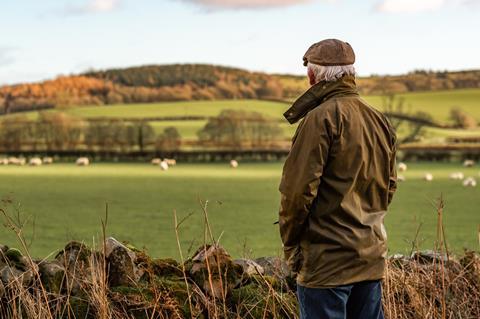
New data from the NFU has laid bare the plight of the farming sector, with short and mid-term farmer confidence at its lowest level since before the Covid pandemic.
The union’s latest Farm Confidence Survey, which polled 613 NFU farmer and grower members between 1 November and 23 January, found that 88% of respondents felt the soaring price of input costs such as energy, fuel and fertiliser would negatively effect their businesses.
Some 82% of farmers said the phasing out of current farm support payments was negatively affecting business confidence, the NFU added, while 55% were concerned about the introduction of new government support – such as its post-CAP Environmental Land Management schemes.
Similarly, 55% said they would engage with one or more ELM scheme to mitigate the phasing out of the existing Basic Payment Scheme. But amid ongoing uncertainty over its rollout, this figure was down from 68% last year.
As a result, the short-term (one-year) outlook for farm business confidence was down by 15 points since the same time last year, falling from a score of +7 on an NFU business confidence index to –8. The mid-term (three-year outlook), meanwhile, fell from –1 to –8.
This lack of confidence was affecting the horticulture, livestock and poultry sectors the most, the NFU said. It was driving the raft of supermarket supply issues seen on supermarket shelves in recent months, such as shortages of produce including eggs, tomatoes, cucumbers and peppers, it added.
Aginflation easing but farms remain under pressure
The survey also found that 72% of farmers were being negatively affected by regulation and legislation.
But despite the overall negative sentiment among farmers and growers, the sector’s intention to invest in renewable energy generation and energy efficiency increased rapidly, the NFU said.
“This demonstrates a real ambition to future-proof farm business resilience and reach British farming’s net zero by 2040 target, as well as the importance of energy security to the nation’s food security,” it added. “But investment to increase climate-friendly farming capabilities is being hindered by low levels of short and medium-term business confidence,” it warned.
One key change that could revive confidence was the introduction of a government strategy to avoid being undercut by imports produced at lower standards, which gained the support of 86% of respondents.
A further 83% said an increase in output prices was either important or very important for confidence, while 77% said lower levels of input price inflation was important or very important.
NFU president Minette Batters described the poll’s results as “shocking but not surprising”.
During the past three years “we have experienced a global pandemic, a war in Europe, tumultuous political change and extreme weather”, she said.
“If this lack of confidence and uncertainty is allowed to continue during such challenging times, it has the potential to lead to further shortages on supermarket shelves,” she warned.
Where have Britain’s missing apples gone?
“We know from experience that low confidence indicates that farmers don’t have the means to invest in their food-producing businesses, which could result in little to no growth in our domestic food security at a time when we need it most.
“It is also at odds with the government’s own plans for growth, and the commitments made by prime minister Rishi Sunak last year to support British farming by setting a target for the nation’s food security, with a statutory duty to report on domestic food levels.”
Farmers needed to know that government was supporting them through policies that built profitability and resilience into farm businesses “to allow us to unlock a thriving food and farming industry”, she urged.
“For this we need to see clarity on future farming support policies, including the Environmental Land Management schemes, which will help farmers plan ahead and build financial resilience into their businesses.”
It comes as The Grocer today reported Sunak was set to hold “crisis talks” with farming and supermarket bosses later this month, amid fears over inflation and its impact on food production.
What has been billed by industry sources as the ‘Sunak Summit’ is due to take place in Westminster on 16 May.







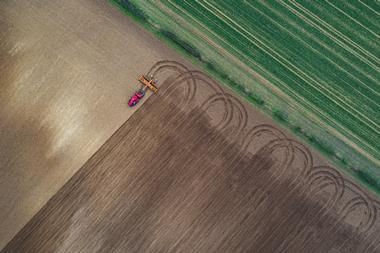
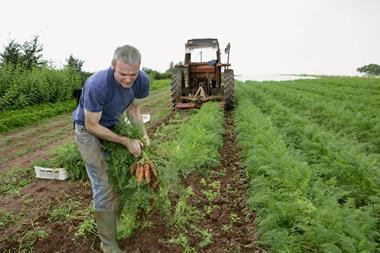
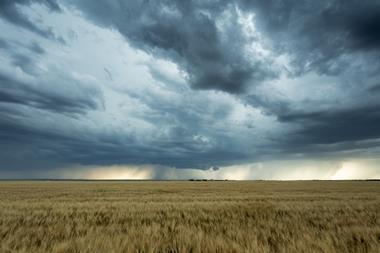

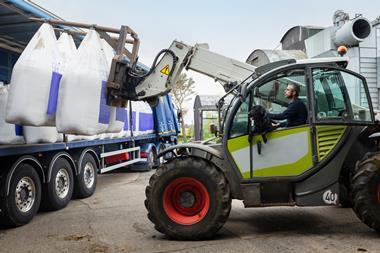
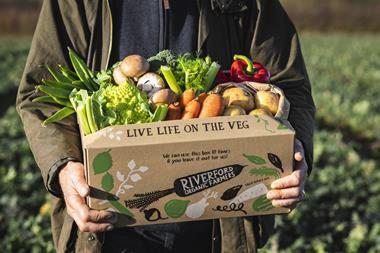






No comments yet